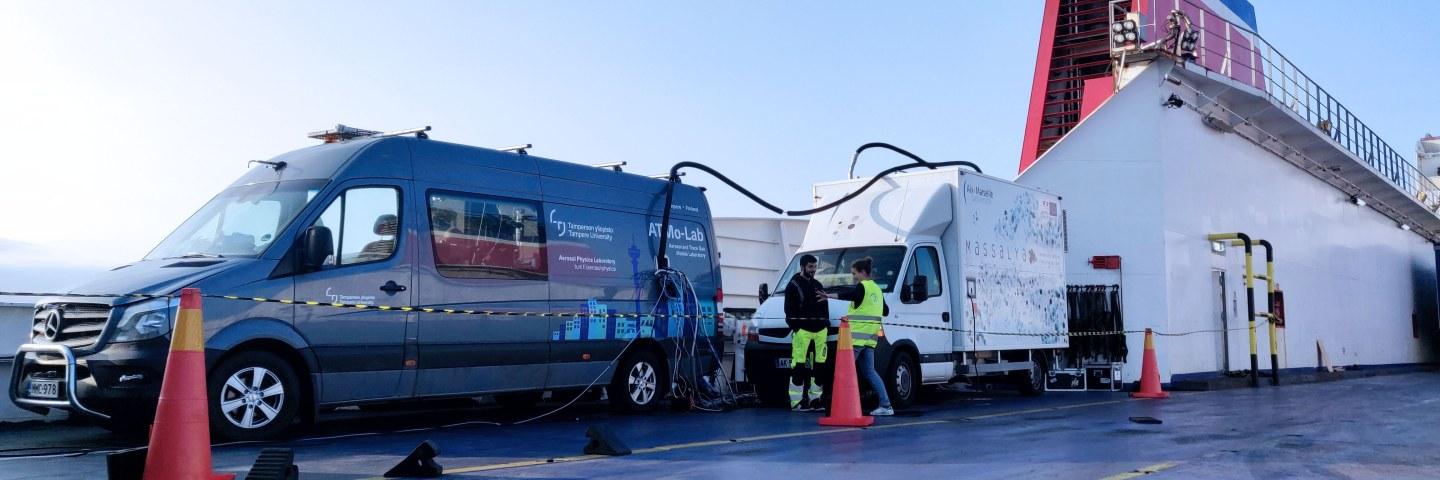The SCIPPER project aims to provide evidence on the performance and capacity of different techniques for monitoring ship emissions and to assess the impacts of shipping emissions on air quality under different regulatory enforcement scenarios. To meet these goals, different measurement techniques will be deployed during five measurement campaigns. These techniques include on-board sensors, sniffers, optical remote sensing, unmanned aerial systems and satellite systems. In addition, the ship exhaust and its development during atmospheric ageing will be characterized in detail to deliver input for air quality models. The air quality models will be further developed especially regarding the atmospheric ageing.
Our main contribution to SCIPPER:
- Assessing particle emission monitoring sensors for on-board use
- Experimental characterization of the chemical composition, volatility, and secondary aerosol formation potential of shipping emissions
- Building up understanding of plume processes, development of plume model for emission aerosol
Background
Emissions of nitrogen oxides, sulfur oxides and particulate matter from ships degrade air quality in coastal areas. To reduce the air quality issues originating from ship engine emissions, there are various limits for equivalent fuel sulfur content and nitrogen oxide emissions. These limits create requirements to monitor the compliance of ships. Since the regulations aim to improve the air quality, advanced models are needed to estimate the impact of potential future regulations on the coastal air quality.
Goal
The main objectives of SCIPPER are:
- To provide evidence on the performance and capacity of different techniques for shipping emissions monitoring and regulations’ enforcement.
- To assess the impacts of shipping emissions on air quality, under different regulatory enforcement scenarios.
Funding source
The SCIPPER project has received funding from the European Union’s Horizon 2020 research and innovation programme under grant agreement Nr. 814893.
Coordinating organisation
Aristotle University Thessaloniki – Laboratory of Heat Transfer and Environmental Engineering

